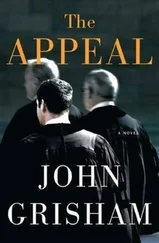Theo was listening intently when he realized that Sebastian Ryan was beside him. Sebastian whispered, “Theo, take off your mask for a minute.” Theo did so and said, “What’s up?”
Sebastian, leaning down, unusually nervous, said, “Look, Theo, we think it’s a great idea for you to speak on behalf of all these kids.”
Theo’s jaw dropped as a bolt of raw fear shot up and down his spine. He couldn’t say a word. Sebastian continued, “You’ll be the last speaker, and when you walk down to the podium we’ll get all the kids to follow you. It’ll be a mob staring at the commissioners. You gotta do it, Theo.”
“No way,” Theo managed to say. His mouth was already dry.
“Sure, you can do it. We heard a rumor that the commissioners and a lot of other people want to see the kids who made the video. You’re the man, Theo.”
Chapter 28
Each foot seemed to weigh a ton. As Theo walked down the center aisle, an aisle that led directly to the podium, and a few feet beyond that the hard faces of the commissioners, he realized he had nothing to say. Nothing was prepared. Not a single note. He was terrified, numb, having trouble breathing, and suddenly thinking of running away, of vanishing. A familiar face appeared to his left near the aisle. It was the Major, smiling proudly with a fist clenched, as if to say, “Go get ’em, Theo.”
Theo was aware he was being followed; he could feel bodies hustling behind him and he could see the other kids moving in from his right and left. By the time he arrived at the podium, they were swarming around it. Dozens of kids, maybe hundreds, all in their yellow battle gear. Small kids from the kindergarten at Jackson Elementary, and older students from Theo and Hardie’s band of activists. They bunched together in one yellow mob around the podium and looked at the commissioners.
Reluctantly, Theo stepped up to the podium. He took the microphone, pulled it down a few inches, and tried to think of something to say. The room was still and quiet. The rowdy mob of adults was silenced by the courage of the kids.
Theo tried desperately to remember all the rules and tips from his debating career, but at that horrible moment his memory failed him. He was as stiff as a board and had never been so frightened. After a few awkward seconds, it was obvious that no one was going to speak for him, so he cleared his throat, pulled down his yellow mask, and managed to say, “I’m Theo Boone, and I’m in the eighth grade at Strattenburg Middle School.”
Mr. Cerroni came to his aid with a quick, “Are you the kid who made the video on YouTube?”
“Yes sir, with some friends.”
This brought a roar from the crowd that stunned Theo. He glanced over his shoulder and saw people standing and yelling, and he managed to smile. At last count, the video had over 100,000 hits, and Theo guessed that everyone in the auditorium had seen it, and probably more than once.
When the moment passed and the crowd settled down, Mr. Cerroni said, “Well thanks, Mr. Boone, for that video.” None of the other commissioners seemed to share his gratitude, but Mr. Sam McGray suddenly asked, “Are you the kid with the dog?”
“Yes sir.”
“If I recall correctly, according to the newspaper, you referred to the people who want to build the bypass as a bunch of thugs, or something like that.”
A few slight hisses from the crowd, good people behind Theo who didn’t like the question. He realized he had the advantage of being a kid. The commissioners could not afford to be rude or rough with him. After all, he was only thirteen years old.
Theo replied coolly, “No sir. The thugs I was referring to were the thugs who beat my dog.”
Mr. McGray nodded but said nothing else.
“How is your dog?” Mr. Cerroni asked.
“He’s doing fine, thank you.” There was a smattering of hands clapping.
“Can we move along?” Mr. Grimes said with great irritation. He was already tired of looking at all those brats out there, faces hidden behind yellow masks and bandannas.
Mr. Stak, as chairman, said, “You have the floor, Mr. Boone. No longer than five minutes.” He glared at Theo, drilling him with his black eyes. Theo could not maintain eye contact. Theo could not breathe, or think, or do anything but stand, clutching the sides of the podium as the seconds ticked by and everyone waited. He felt like fainting.
One of Mr. Mount’s more difficult sessions during debate had been the exercise in spontaneous speaking, or rising before a crowd with no notes, no preparation. Each side entered the debate cold, with no idea of what to expect, no idea of what the issue would be. Mr. Mount then announced the topic of the day, and each side was given five minutes to scramble, prepare, and try to form intelligent arguments. The first trick, according to Mr. Mount, was to relate the topic to something personal. Something you know a lot about.
Theo looked at Mr. Cerroni, an ally, and began, “Both of my parents are lawyers, and I’m lucky enough to spend hours in their office. I’ve sort of grown up there, and I’ve learned a lot, at least for a thirteen-year-old. I’ve done plenty of research into the legal rule of eminent domain, or the government’s right to take property away from a person who doesn’t want to sell. In our country, owning property is a very important right, something most Americans dream of, and for most Americans the dream comes true.” He was breathing well. His voice was settling into a nice rhythm. He was still terrified but was managing to hide his fear. He remembered Mr. Mount’s constant advice: “Speak slowly. Speak clearly. Speak deeply.”
The crowd was silent. Go Theo.
“Eminent domain is to be used only in extreme cases. And this is not one of them. This bypass is not crucial to our lives here in Strattenburg. In fact, life will go on here just the same without the bypass. It might benefit a few, but the vast majority of us will never know the difference. So, under our laws, this project is not crucial. Therefore, the government cannot take property using eminent domain. And why should the government?” A slight pause for dramatic effect. He just remembered a great line—something he’d read in a Supreme Court case. “Just because the government is big enough, strong enough, rich enough, and powerful enough, doesn’t mean it has the right to take land from its citizens.”
This landed perfectly and the crowd reacted with another boisterous round of approval.
Theo had found his rhythm, his traction, and for a brief moment he relished being in the spotlight. He shifted his weight, like all good lawyers do in court when addressing the jury, and he wished he could pace, back and forth, but he was stuck behind the mike. He continued looking at Mr. Cerroni’s friendly face and said, “You’ve already heard from Reverend Quinn, who described their family’s farm. Well, I’ve been there. Hardie Quinn is my friend and one of the kids behind the video. He’s grown up on the family farm, a beautiful one-hundred-acre piece of land that every one of us would love to live on. It has everything—thick forests for hunting, springs and creeks for fishing, the river for rafting, open pastures for growing hay, miles and miles of trails for hiking and horseback riding. There is a tree house, a barn, a stable, a toolshed, a cemetery, and an old country house where the Quinn family gathers every holiday and on most weekends. On the front porch, hundreds of Quinns have gathered over the years to drink iced tea and talk about life. In the backyard, they’ve had weddings, funerals, and a pig roast every Fourth of July. Imagine, just imagine, the State Highway Department reducing it all to rubble with a bunch of bulldozers. That would be wrong.” Several in the crowd agreed and voiced their approval.
Читать дальше












